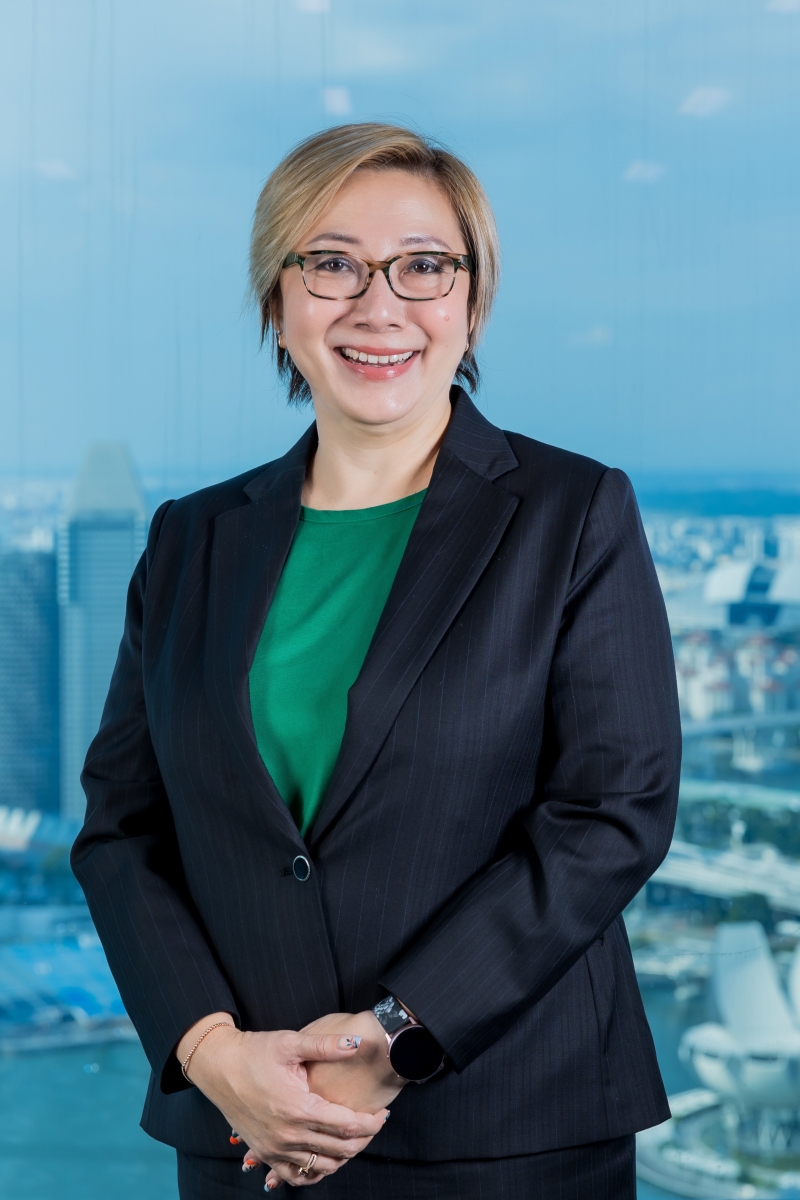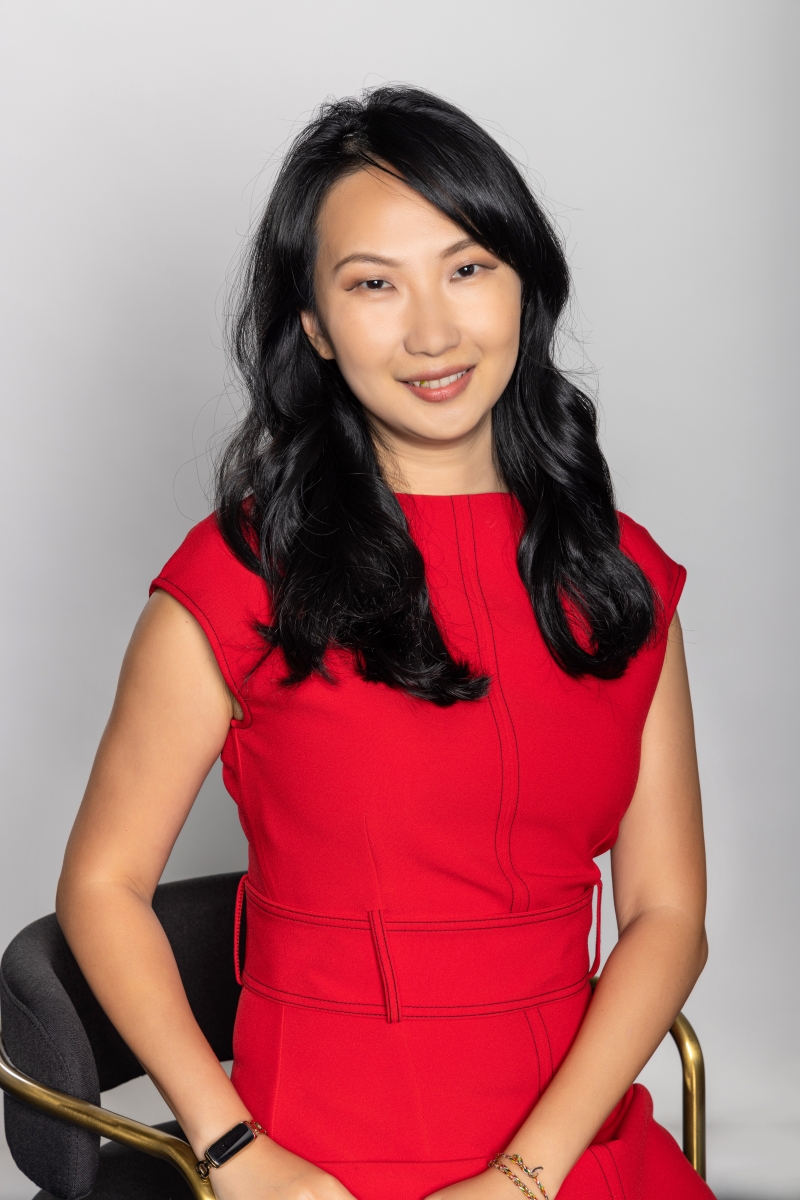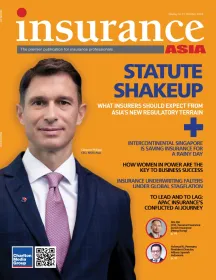
Strong women in insurance speak on gender bias
Leading women in Singapore’s insurance industry highlight the role of support networks and mentorship in advancing women’s careers in male-dominated sectors.
Singapore has a goal that 25% of company boards should be run by women by 2025. This seems like a far-fetched idea considering that only 6.3% of chief executive officers (CEO) are women, according to the latest data from the MSCI ACWI Index. The presence of women on boards of large- and mid-cap companies saw a slight uptick in 2023; however, men still predominantly occupied leadership roles on boards, with women securing only 9.1% of chair positions and 6.5% of CEO roles, globally.
Women accounted for 25.8% of board seats, marking a modest increase of just over one percentage point from the previous year. The report unveiled notable geographical disparities in female board representation, with developed markets (DM) significantly outpacing emerging markets (EM) in this aspect.
Diversity, however, was not limited to gender alone. Boards showcased a broader spectrum of diversity compared to executive suites, encompassing both gender and ethnicity. Healthcare emerged as the leading sector in terms of gender diversity, boasting the highest ratio of companies with at least 30% female board representation. On the flip side, the information technology sector maintained the dubious distinction of having the highest proportion of all-male boards, a trend that even saw an increase from the previous year.
The report also shed light on the concerning state of ethnic and racial diversity disclosures, which remained limited and incomplete. Data from prominent economies like the UK and the US underscored a persistent lag in increasing the representation of ethnic and racial minorities on boards and executive management teams compared to advances in gender diversity. As corporate landscapes continue to evolve, stakeholders are increasingly pushing for more comprehensive diversity initiatives to foster inclusive and equitable environments within boardrooms worldwide.
Insurance Asia is fortunate to have some of Singapore’s insurance leaders share their perceptions as women powering through the industry. Below are excerpts from their exclusive interviews with the magazine.
What notable achievements/insights would you like to share with us about your experience in a male-dominated industry?

Jessie Cheing, Chief Human Resources Officer of Manulife Singapore: I’ve always believed that leadership excellence and innovation are not confined to a specific gender. Throughout my career, I’ve drawn inspiration from numerous women who have made significant contributions. During my HR consulting tenure in Shanghai, where women are recognised for their influential roles in families, I had the privilege of working with many inspiring female leaders. This experience has shaped my perspective, and I often joke that I must have missed the memo stating that women should not strive to achieve like men. In many ways, this mindset has positively impacted my career. This perspective, coupled with the supportive environment at Manulife, has positively influenced my career. Despite the perception of insurance being male-dominated, Manulife’s commitment to inclusivity has facilitated my seamless transition, evident in the 58% representation of women in our Asian workforce.

Grace Tng, Chief Distribution Officer at HSBC Life (Singapore): As a woman in insurance in Singapore, we are fortunate to have examples of women who have risen to leadership positions in the industry and also the wider financial sector. These female leaders are an inspiration and encouragement to the women who come after them that it is possible to achieve their career goals. In my position, I have a front-row seat to the success of the many women in our HSBC Life agency sales force. Financial advisory is a profession that requires a significant amount of empathy to fully understand the customers’ needs to propose the correct solutions. Beyond solutions, adopting the appropriate tone and approach is needed to reach the customers at their level of comfort with financial solutions. For example, customers who are less comfortable with financial planning conversations may be more receptive if the financial planner recognizes this and can conduct the conversation at a pace more suited for the customer. Many women have an innate ability to connect and empathise, and many in our agency sales force have fully tapped into this ability to excel in this career and half of our MDRT qualifiers are women. I’m particularly heartened that the proportion of women among our agency sales force managers and leaders reflects the overall proportion of women in our agency force. This reflects that we have created an environment where both men and women can succeed. The ability to connect benefits female financial planners not only in the way they connect with customers but also as they progress to managerial and leadership roles. The men in their team appreciate the different perspectives their women leaders bring, while the women financial planners value the example and inspiration the women leaders offer through their ability to achieve balance in their personal lives and career aspirations. The work environment provided by a financial advisory career, such as through the flexible timing and self-directed nature of their goals, benefits and is appreciated by many women seeking to balance professional and personal commitments.

Liu Chunyen, Chief Investment Officer of AIA Singapore: Despite the commendable strides made by women, gender disparities continue to persist across many aspects of life — and the world of finance, traditionally dubbed as a “boy’s club” was no different. Upon completing my master’s degree in New York, I embarked on a Wall Street career and quickly found that Asian women were rarely seen as a first choice, regardless of their abilities. This treatment, while showcased through varying extents and iterations, has remained more or less constant throughout most of my career; wherein I’ve observed that the male-to-female workforce ratio narrows down as we progress upward the organisational hierarchy. My observation is that this circumstance is a product of unconscious bias, a product of human nature and our inclination to associate with people who are “more like us”. While Singapore’s financial services industry has made much headway in advancing gender diversity, more can be done to realise true equity, and reducing unconscious bias in the workplace is key.

Helen Shen, Group Head of Health at Singlife: In this male-dominated industry, my biggest achievement is bringing my whole self to the table. As a career woman, daughter, mother of three, and wife, I’ve demonstrated that women can be successful in any industry while embracing all facets of their identities. This is a message I believe is important for women everywhere.
Despite progress, women remain underrepresented in senior leadership positions across various industries, including insurance. What systemic changes do you believe are necessary to bridge the gender leadership gap in the insurance sector?
Cheing: To reframe the narrative, we must shift our focus from merely increasing the number of women in leadership to understanding the value of diverse leadership styles and perspectives. Systemic changes should include developing a culture that values diverse contributions equally, implementing development pathways that support individual growth, and recognising the achievements of leaders who promote inclusivity. By changing the metrics of success, we can create a more equitable and dynamic leadership landscape in the insurance sector. At Manulife, our commitment is evident in fostering a working environment where everyone feels accepted and valued. Globally, we boast more than 55% female representation, emphasising our dedication to having a diverse workforce.
Tng: The first step to solutioning [sic] is having a clear understanding of the problem statement or issue at hand. The same can be applied here. Companies can benefit from systemically tracking female representation at the various levels of their organisation so that any gender gap can be quickly identified. Being aware of where and how significant such gaps are will also position the organisation to set targets and track progress. To that end, HSBC is on track to meeting our goal of having 35% of senior leadership roles held by women by 2025, having reached 34.1% at the end of 2023. The goal was set after our ambition of 30% of senior leadership roles held by women was achieved in 2020. It is heartening to see that Singapore, and the Wealth and Personal Banking business (that Insurance is part of) in Singapore, are aligned to this goal and have achieved similar levels of female representation at senior leadership level as HSBC globally. People need role models to be inspired by and networks to reach out to for support and guidance. This is where women or diversity-focused groups can be useful in cultivating opportunities for women to build their networks within the organisation and industry. At HSBC, we have a Balance Employee Resource Group that creates opportunities for women to come together. There are also various coaching programmes across HSBC, some of which are specifically offered to women. Even where programmes are not women-specific, they offer opportunities to interact and network with other women in the organisation. Organisations can also make small but meaningful changes to impact gender balance. Research has found that vague job descriptions that lack clear qualification criteria can discourage women from applying for the role. Job descriptions that are clearer around expectations can give women more confidence to apply for roles they are very qualified for. By systematically improving the quality of job descriptions and qualification criteria, organisations can attract a greater number of quality candidates. It’s a win for both male & female applicants as there is more clarity around the role and expectations from the onset. This will surely set new hires up for success, and ultimately benefit the hiring organisation as well.
Chunyen: Across all sectors, true change can only occur through a strong commitment from the top, and taking proactive steps to be rid of unconscious bias can go a long way. From a systemic standpoint, policies pertaining to equal gender representation, equitable remuneration and parental policies offer significant benefits to women, alongside diversity, equity, and inclusion codes of conduct. Cultivating a women’s network at work and beyond, too, has proven to afford women better career support and mentorship. One such example is Bloomberg’s Women’s Buy-side Network’s Singapore Chapter, a community of female senior leaders in investment management that seeks to create a more inclusive and equitable industry, of which I am a Founding Member and mentor.
Shen: Singlife stands out as one of the few financial services companies with a female CEO, Pearlyn Phau. Our executive committee boasts strong female representation, with women holding and leading many key positions. I’m incredibly proud to work for such a forward-thinking organisation. In Singlife’s boardrooms, the environment feels natural and highly cohesive. There’s a strong culture of support, and I never feel like “just a woman.”
Are there any innovative approaches or technologies that you believe hold promise for creating more inclusive workplaces and levelling the playing field for women leaders?
Cheing: While technologies facilitating remote work, flexible hours, and collaborative platforms contribute to a more level playing field, I believe innovation for inclusivity extends beyond technology. It’s about fostering an organisational mindset that embraces change and diversity as key drivers of success. For instance, we have a dedicated global DEI (diversity, equity, and inclusion) team, led by our Global Chief Diversity Officer, that supports our business in achieving its DEI goals. Diversity and inclusion are not simply an initiative owned by HR, but a shared responsibility by the leaders who can shape the direction, redefine the way we measure success and move away from competitive comparisons to foster an environment where every individual’s contribution is recognised and valued. Last year, Manulife was named Bloomberg’s Gender-Equality Index for the fifth consecutive year, reaffirming that we are on the right track in building a diverse and inclusive workplace.
Tng: Many companies are starting to look internally to promote people into roles before they hire externally. This practice promotes career development and can be a good boost for staff morale and motivation. Women especially could benefit from this practice as key stakeholders in the organisation may already know their capabilities and attitudes, and there’s less dependence on their inclination to promote themselves. In addition, diversity in career paths, such as exposure to a variety of functions and areas, tends to position a person for senior leadership roles. When looking at internal mobility, companies can afford to be deliberate in including women. This will help these women be ready for senior leadership later in their careers, hence building a healthy pipeline of women's talents for the organisation.
Chunyen: With the advancements in technology, businesses now can leverage a data-driven approach to assessing the progress of DEI initiatives and offer flexible working arrangements — allowing both men and women to better juggle work and childcare duties. That said, I believe that education and training, directed at senior management, are most crucial for the meaningful reassessment and implementation of DEI guidelines and policies.
Shen: The use of technology in workplace communication has significantly impacted women, not just leaders, but women in general. Traditionally, large conferences, meetings, and workshops were held in person, often in large rooms. This environment could be intimidating for some women, making them hesitant to speak up or take centre stage in discussions. However, technology is breaking down these barriers in fascinating ways. I recently read an article that explored how platforms like Zoom or Teams empower women to feel more comfortable interacting with larger audiences. These tools provide women with multiple ways to participate, whether it’s through thumbs up reactions, posting questions, typing questions in chat, using polls, or even submitting thoughts beforehand. While the widespread use of this technology wouldn’t necessarily be considered innovative anymore, it has become commonplace and significantly helped women overcome initial hurdles in speaking up and actively participating in discussions. This fosters a much more inclusive workplace environment. Singlife also has a mentorship programme. While not exclusive to women, a key focus is on women mentoring other women. I’m proud to be a mentor alongside many other female leaders in the programme. It’s inspiring to see more women progressing into senior roles.
Lastly, what advice would you like to give fellow women (or to the men) in this industry?
Cheing: To fellow women, embrace your unique perspectives and strengths. Your diversity of thought is invaluable, and it’s important to advocate for yourself and others. Seek out mentors and become one, because we all thrive through mutual support and guidance. To the men in our industry, I encourage you to be allies. Recognise the strengths in diverse teams and foster an environment where everyone, regardless of gender, can succeed. Leadership is about elevating others and creating a legacy of empowerment and opportunity.
Tng: First and foremost, be bold — be bold in being heard and recognised. Many women, especially in the middle levels of the organisation and at the cusp of leadership, bring a high level of subject matter expertise. When your views are heard, you are benefitting the group you are working with and the wider organisation with your perspective. Be bold in raising your hand for opportunities. These could be opportunities that are to progress your career, or enrich your time in the organisation or even your life. I had the privilege of taking on the role of Coach in one of HSBC’s regional coaching programmes. Connecting with the unique and diverse individuals in our coaching circle brought so much value not only professionally but personally as well. What it took was raising my hand to be open to the opportunity. Don’t undersell the value that you bring to any organisation and any team you are part of. We grow the most when we are at the edge of our comfort zone. Yet it can be intimidating being at that point. Stay focused on the value you can bring, surround yourself with an encouraging and wise network, and keep growing.
Chunyen: Dealing with unconscious bias is key. We should proactively distance ourselves from stereotypes and generalisations and keep our personal biases in check. Remember that they are not always deliberate, be confident in your abilities and potential — lest you let unconscious bias fuel your imposter syndrome.
Shen: My advice is to identify your strengths and weaknesses and strive to be the best version of yourself. When I was younger, I aspired to be an outstanding senior leader. This meant meticulously studying the career paths of other successful women leaders and attempting to emulate them. However, I now believe that there's no single path to success. We are all unique individuals with different strengths, internal weaknesses, and goals. By focusing on becoming the best version of ourselves, we can each forge our own unique path to success.



















 Advertise
Advertise


